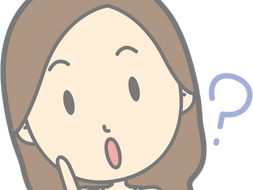martes, 30 de octubre de 2018
lunes, 29 de octubre de 2018
UNIT 2 PAST PERFECT
El pasado perfecto en inglés corresponde al pluscuamperfecto de español. En general, lo usamos para acciones que ocurrieron antes de otra acción en el pasado.
Grammatical Rules (Reglas gramaticales)
Form (Forma)
Igual que en el presente perfecto, se forma el pasado perfecto con el verbo auxiliar “to have” y el participio pasado. El verbo auxiliar estará en pasado.
| Sujeto | Verbo Auxiliar | Forma Corta | Participio Pasado |
|---|---|---|---|
| I, you, he, she, it, we, they | had | I’d, you’d, he’d, she’d, it’d, we’d, they’d | studied, visited, worked… |
Nota: Ten cuidado porque la contracción “-’d” también se utiliza con el verbo modal “would” para formar el condicional. Como tal, la forma corta “I’d” puede tener dos significados diferentes. Podemos distinguir entre estos dos significados por la forma del verbo principal que les sigue. Si queremos decir “I’d” en el sentido de pasado perfecto, el verbo principal está en la forma de participio pasado, mientras que con el condicional, “I’d” va seguido por el verbo en infinitivo. Para más información, ver la lección sobre las frases condicionales.
Structure (Estructura)
1. Affirmative Sentences (Frases afirmativas)
Sujeto + “had” + participio pasado…
Ejemplos:
| I had [I’d] visited the Louvre before, so I knew where the Mona Lisa was.(Había visitado el Museo del Louvre antes, así que sabía donde estaba la Mona Lisa.) |
| They had [They’d] studied English before they went to London.(Habían estudiado inglés antes de irse a Londres.) |
2. Negative Sentences (Frases negativas)
Sujeto + “had” + “not” + participio pasado…
Ejemplos:
| I had not [hadn’t] visited the Louvre before so I didn’t know where the Mona Lisa was.(No había visitado el Museo del Louvre antes, así que no sabía donde estaba la Mona Lisa.) |
| They had not [hadn’t] studied English before they went to London.(No habían estudiado inglés antes de irse a Londres.) |
| Henry changed careers even though he had not [hadn’t] worked as an accountant for long.(Henry cambió de profesión a pesar de que no había trabajado como contable durante mucho tiempo.) |
3. Interrogative Sentences (Frases interrogativas)
“Had” + sujeto + participio pasado…?
Ejemplos:
| How did you know where the Mona Lisa was? Had you visited the Louvre before?(¿Cómo sabías dónde estaba la Mona Lisa? ¿Habías visitado el Museo del Louvre antes?) |
| Had they studied English before they went to London?(¿Habían estudiado inglés antes de irse a Londres?) |
| Had Henry worked as an accountant for long before he changed careers?(¿Henry había trabajado como contable durante mucho tiempo antes de cambiar de profesión?) |
Uses (Usos)
1. Usamos el pasado perfecto para referirnos a una acción o evento que comenzó en el pasado y que es anterior a otra acción también en el pasado. La acción que ocurrió primero es en pasado perfecto y la que sigue en pasado simple.
Ejemplos:
| I’d read the book before I saw the movie.(Había leído el libro antes de ver la película.) |
| Donna had just left when you called.(Donna había salido justo cuando llamaste.) |
| Had you ever flown before the trip to France?(¿Alguna vez habías volado antes del viaje a Francia?) |
2. Se usa para acciones que ocurrieron antes de un tiempo específico en el pasado.
Ejemplos:
| I had already woken up when the alarm clock rang at 7am.(Ya me había despertado cuando sonó el despertador a las 7.) |
| He hadn’t been to France before the trip in 2008.(No había estado en Francia antes del viaje del 2008.) |
3. También, como en el presente perfecto, con algunos verbos usamos el pasado perfecto para situaciones que empezaron en el pasado y que siguieron hasta un punto específico en el pasado.
Ejemplos:
| She had only owned one car before she bought her new BMW.(Solo había tenido un coche antes de que comprara su nuevo BMW.) |
| I’d been depressed for a long time before I changed jobs.(Había estado deprimido durante mucho tiempo antes de que cambiara de trabajo.) |
Nota: Ver una lista de los verbos que no usamos, la lección de los tiempos continuos de los verbos
.
UNIT 2 EXCERCISE USED TO

Elige la respuesta correcta.
Resultados
Q1 of 10
I used to smoke when I was in my 20s.
Respuesta correcta
Q2 of 10
I usually smoke when I drink.
Respuesta correcta
Q3 of 10
I am used to the smell of smoke because my husband smokes.
Respuesta correcta
Q4 of 10
There was a time when she would always work late.
Respuesta correcta
Q5 of 10
He used to be a vegetarian when he was a kid.
Respuesta correcta
Q6 of 10
They were getting used to the silence when they built a restaurant next door.
Respuesta correcta
Q7 of 10
Sally didn't use to drink a lot of wine.
Respuesta correcta
Q8 of 10
It's a noisy apartment, but I am used to it.
Respuesta correcta
Q9 of 10
Bill is used to working long days.
Respuesta correcta
Q10 of 10
By the time John moves in, I will be used to living alone.
Respuesta correcta
Suscribirse a:
Comentarios (Atom)
EXCERSICE INDIRECT QUESTIONS
"What's this?" "Do you know what this is?" 1 "Where's the station?" "Can you te...

-
Past Perfect - Positive and Negative Make the positive or negative past perfect simple 1) When I arrived at the cinema, the fil...
-
DELEXICAL VERBS . Delexical verbs son verbos comunes como “have”, “take”, “make” o “give” que cuando se usan con sustantivos particulares...

